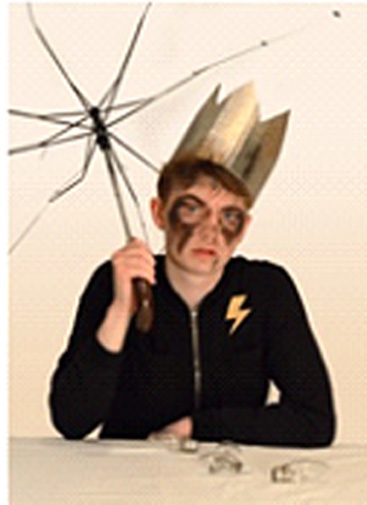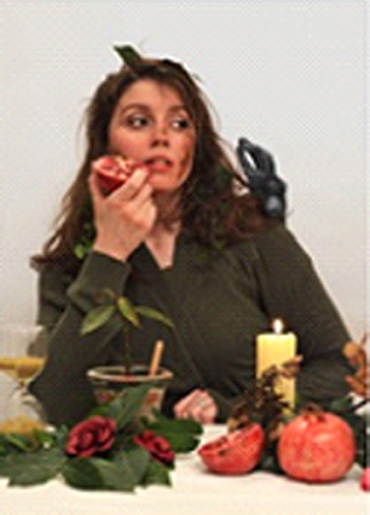Ian Mason: 25 years of teaching OCR Photography
19 July 2018
Ian Mason, Course Leader for photography, media and film at Bridgwater and Taunton College has taught OCR Photography for 25 years.
During this time he has seen well over 1,000 students through their AS and A Level photography qualifications.
As he finishes his last teaching year, Ian spoke with OCR’s Subject Advisor Rebecca Wood to share his experience and teaching methods, whilst also addressing some of the topical issues in the world of photography.
Here’s how the interview went:
What did you enjoy about teaching OCR's Photography qualifications?
I enjoyed the freedom of the syllabus and the variety in the exam paper and never felt the need to change.
What are some of the biggest changes you’ve seen during the 25 years you’ve been teaching photography?
I suppose the biggest change during my photography teaching career has been the rapid and overwhelming development of digital photography. Undoubtedly this has popularised photography phenomenally and our student numbers increased significantly from the late nineties.
Do students prefer working digitally to working in the darkroom?
Students generally prefer digital photography due to its immediacy and automation over analogue processes. However, we have never relinquished the darkroom and most students enjoy the craft side of the ‘wet process’ during the course, specifically the first term of A Level.
Initially, the disciplines of exposure and processing are best taught via ‘lensless’ techniques.
I use pinhole photography as an introduction to exposure and image making as the complex theories are easily communicated via trial and error, physically making the image; following up with film photography compounds understanding of exposure with added dimensions of depth of field and shutter speed.
Once the student has acquired the ability to work with analogue in manual mode to craft the image, I feel they have a better understanding of the digital process.
How has the increasing accessibility to cameras changed how students approach their work?
The ability of mobile phone cameras to resolve high-resolution images has similarly democratised photography and generated interest in the subject.
Most students use their phones as a visual sketchbook to develop an idea, returning to a location with an appropriate camera when they have thought about their needs.
Having a camera 24/7 aids students to refine ideas and this has improved sketchbook development despite a glut of initial images that need to be examined before deleting the majority...
How about the use of editing software? 
Using Photoshop offers far more control over the image than the darkroom, but again, sometimes the unlimited possibilities are a hindrance, where a student spends a whole class editing one image rather than making several prints in the darkroom at the same time.
Some students prefer the physicality of the darkroom; standing, adjusting and moving around instead of sat looking at a screen for long periods.
I always demonstrate darkroom techniques like solarisation and montage before referring to their digital equivalents in Photoshop.
Again this shows the links with history and context.
Have the subjects that students are interested in changed over the years? Are they more or less motivated by broader issues?
Generally, the topics of student projects are the same over the period I have taught from a socio-political perspective. Some students are more aware than others and enjoy the opportunity to communicate with their observations. 
I find students who study sociology and psychology tend to relish photography’s ability to capture social observations with their cameras.
Have any of your students gone on to have careers in photography?
I have had many students who have successfully pursued careers in the industry; most of these have studied degrees before moving into their chosen fields.
Not all are photographers, but work within the industry; Features Editor of a digital photo magazine, Head of Digitisation Services - The National Library of Wales, roles in marketing that use photographic knowledge etc.
And lastly, any stand-out projects?
Every year there have been one or two students who really exceed A Level achievement with their work and this year I have one student whose work is outstanding in concept and skill.
Please see the images on the right of her work based on Greek gods.
If you would like to contact us regarding this or any other art and design-related queries please email us via art&design@ocr.org.uk or follow us and send your tweets to @OCR_ArtDesign.
About the author
 Rebecca Wood - Subject Advisor
Rebecca Wood - Subject Advisor
Before joining OCR, Rebecca taught in post 16 education for 17 years. She also worked as an examiner and moderator across a range of creative subjects. Rebecca has also run workshops for young people as far afield as Brazil and Russia. In her spare time, she enjoys travelling, spending time with her two sons and walking her dog.